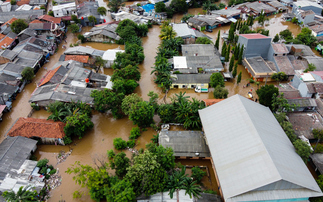African nation submits INDC that commits it to mobilising increased investment in clean technologies and afforestation
Kenya has become the latest country to submit a climate action plan to the UN ahead of this year's Paris Climate Summit, pledging to cut emissions by 30 per cent by 2030 against business-as-usual levels.
The nation's official Intended Nationally Determined Contribution (INDC) sets out a strategy to accelerate the rollout of a range of climate mitigation and adaptation measures, including plans to expand geothermal, solar and wind energy capacity, achieve 10 per cent tree cover across the country, reduce reliance on wood fuels, and deliver more sustainable transport, agriculture and waste management systems.
The plan states that the moves are particularly important to Kenya as it is vulnerable to escalating climate impacts.
"Kenya, like other countries in the region, is bearing the brunt of climate change impacts and the associated socioeconomic losses," the INDC states. "The situation is exacerbated by the high dependence on climate-sensitive natural resources... Climate hazards have caused considerable losses across the country's different sectors over the years. The main climate hazards include droughts and floods which cause economic losses estimated at three per cent of the country's gross domestic product (GDP)."
The submission provides a further boost to hopes that an international climate deal based on independent national climate action plans can be delivered in Paris later this year.
However, the INDC also underlines the scale of the challenge if nations are to deliver an agreement and secure the steep emissions cuts necessary to limit global temperature rises.
The document notes Kenya's emissions are "relatively low" and asserts the commitment to cut emissions below the business-as-usual pathway is "subject to international support in the form of finance, investment, technology development and transfer, and capacity building". It also notes that its business-as-usual calculations exclude future exploitation in the extractive sector.
The submission is the latest in a series of INDCs to be filed with the UN. This month has already seen Japan, the Marshall Islands, Singapore and New Zealand submit their plans, joining China, the EU and US in putting forward formal commitments.
To date, 47 countries have now submitted plans covering 59 per cent of global emissions, while plans are expected from Brazil, Indonesia and Colombia in the next few weeks.
The latest developments come as the two co-chairs of the Paris talks are expected to release an update to the draft negotiating text late today, after they were charged with delivering a streamlined version of the currently unwieldy text.
The draft is to be released following a meeting of key ministers in Paris earlier this week which was widely described as a success, with many of the key players appearing to back a plan based on a network of INDCs and a mechanism for assessing progress at regular intervals.









